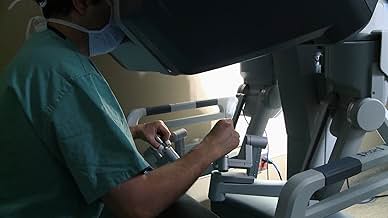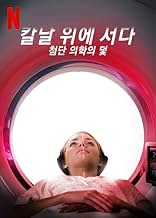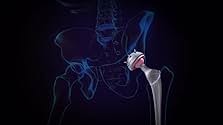AVALIAÇÃO DA IMDb
7,6/10
3,2 mil
SUA AVALIAÇÃO
Adicionar um enredo no seu idiomaA look at the unforeseen consequences of advanced technological devices used in the medical field.A look at the unforeseen consequences of advanced technological devices used in the medical field.A look at the unforeseen consequences of advanced technological devices used in the medical field.
- Prêmios
- 2 vitórias e 2 indicações no total
Michael Carome
- Self - Director, Public Citizen Health Research Group
- (as Dr. Michael Carome)
David Kessler
- Self - FDA Commissioner, 1990 -1997
- (as Dr. David Kessler)
Stephen Tower
- Self - Orthopedic Surgeon
- (as Dr. Stephen Tower)
Adriane Fugh-Berman
- Self - Professor of Pharmacology & Physiology Georgetown University
- (as Dr. Adriane Fugh-Berman)
Deborah Cohen
- Self - Associate Editor, British Medical Journal
- (as Dr. Deborah Cohen)
Rita Redberg
- Self - Editor, JAMA Internal Medicine
- (as Dr. Rita Redberg)
Robert Bridges
- Self - Diagnostic Radiologist
- (as Dr. Robert Bridges)
- Direção
- Roteiristas
- Elenco e equipe completos
- Produção, bilheteria e muito mais no IMDbPro
Avaliações em destaque
Brilliantly produced documentary about how 4 current-day medical devices have had catastrophic health effects for some patients, and how the FDA and industry have failed to prevent this from happening.
One of the best documentaries I've ever seen--coming from one who has seen a lot! I wasn't bored for a minute of this film.
One of the best documentaries I've ever seen--coming from one who has seen a lot! I wasn't bored for a minute of this film.
I have been a Registered Nurse for over 18 years, and I agree this is a HUGE problem we are facing! I will also say (as a medical professional), that until this film, I was not aware there were "loopholes" allowing medical devices to piggyback off of studies that frankly do not apply, and even those studies that were completed lacking in actual data. We are trained that medications and devices go through stringent testing to be considered "safe", and sadly that appears to no longer be the case.
I will be encouraging everyone I know to watch this film, but wholeheartedly agree with the "safety warnings" at the end of the film:
Know what is being placed in your body, and how long it's been available on the market Ask for second or even third opinions Ask your surgeon how many times they've performed the specific operation you're undergoing, and Have a family member or friend act as your advocate while incapacitated by surgery.
Know what is being placed in your body, and how long it's been available on the market Ask for second or even third opinions Ask your surgeon how many times they've performed the specific operation you're undergoing, and Have a family member or friend act as your advocate while incapacitated by surgery.
I can't remember being more shocked watching a documentary since Food Inc. The Bleeding Edge is deeply involving, showing struggles of real people instead of only bombarding viewers with dry facts. You could think that accidents may happen, but the idea that FDA and medical industry could willingly manipulate, cheat and lie to gain as much profit as possible is sickening - and yet it's a reality. Yes, you should research every medicine, every medical device you put in your body, every medical procedure you undergo. Nevertheless, not everyone does, not everyone would think to doubt their doctor's decision - in fact, most people would probably do what they were told. Films like this one are extremely important. Bayer is withdrawing Essure and hopefully they'll be more changes on the way.
If this documentary doesn't cause concern about the FDA and the medical industry, then nothing will.
For those who aren't too put off by a few facts now and then, here's the chronology:
Essure was approved in 2002.
By 2010, everyone who pays attention to these things was painfully aware of the growing number of reports of safety issues associated with the device, and problems with other implants were also getting attention.
The head of FDA's Office for Device Evaluation resigned in 2010. A number of other top FDA medical device officials resigned in the 2009-2012 time period.
The Institute of Medicine did an extensive evaluation of the 510(k) process and, in July 2011, released a 245-page report with criticisms and recommendations.
Congress took the IOM recommendations to heart and, in July 2012, the Food and Drug Administration Safety and Innovation Act was enacted into law. It including the most significant legislation affecting the regulation of medical devices since the 1976 legislation that first gave FDA authority over the safety and efficacy of these products.
Whether the extensive changes that were included in the 2012 legislation will be effective in reducing the number of medical devices that are associated with safety issues post-market, only time will tell. But FDA oversight of medical devices has been under new management and new regulations for over five years now.
In 2016, FDA required Bayer to include a "black box warning" on Essure. A black box warning is also known in the industry as the "kiss of death," because of its typical impact on sales. So it came as no surprise to anyone, when, on July 20, Bayer announced it was withdrawing the product from the US market, due to declining sales.
The documentary was released on Netflix one week later. Hmmm. I wonder if Netflix might have held it for release because, in order for Bayer to sue for libel, it would have had to show that it incurred damages as a result of the libel. Now that there are no sales to be lost, no damages can be incurred.
Essure was approved in 2002.
By 2010, everyone who pays attention to these things was painfully aware of the growing number of reports of safety issues associated with the device, and problems with other implants were also getting attention.
The head of FDA's Office for Device Evaluation resigned in 2010. A number of other top FDA medical device officials resigned in the 2009-2012 time period.
The Institute of Medicine did an extensive evaluation of the 510(k) process and, in July 2011, released a 245-page report with criticisms and recommendations.
Congress took the IOM recommendations to heart and, in July 2012, the Food and Drug Administration Safety and Innovation Act was enacted into law. It including the most significant legislation affecting the regulation of medical devices since the 1976 legislation that first gave FDA authority over the safety and efficacy of these products.
Whether the extensive changes that were included in the 2012 legislation will be effective in reducing the number of medical devices that are associated with safety issues post-market, only time will tell. But FDA oversight of medical devices has been under new management and new regulations for over five years now.
In 2016, FDA required Bayer to include a "black box warning" on Essure. A black box warning is also known in the industry as the "kiss of death," because of its typical impact on sales. So it came as no surprise to anyone, when, on July 20, Bayer announced it was withdrawing the product from the US market, due to declining sales.
The documentary was released on Netflix one week later. Hmmm. I wonder if Netflix might have held it for release because, in order for Bayer to sue for libel, it would have had to show that it incurred damages as a result of the libel. Now that there are no sales to be lost, no damages can be incurred.
Você sabia?
- CuriosidadesEssure, the medical device at the center of the exposé, was discontinued for good in the US in 2018.
Principais escolhas
Faça login para avaliar e ver a lista de recomendações personalizadas
- How long is The Bleeding Edge?Fornecido pela Alexa
Detalhes
- Tempo de duração
- 1 h 39 min(99 min)
- Cor
- Proporção
- 1.85 : 1
Contribua para esta página
Sugerir uma alteração ou adicionar conteúdo ausente






















